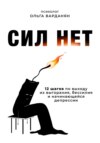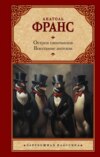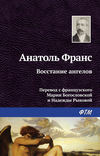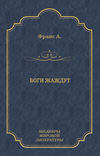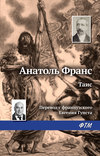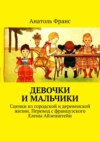Читать книгу: «Our Children: Scenes from the Country and the Town», страница 3
THE FANCY DRESS PARTY

Here are little boys like knights of old, and little girls who are heroines. Here are shepherdesses with dresses looped up in paniers and garlands of roses, and shepherds in satin suits with knots of ribbons on their shepherd’s crooks. Dear me, what pretty white sheep such shepherds must have in their flocks! And here are Alexander and Zarius, Pyerhus and Merope, Mahomet, Harlequin, Scapin, Blaise and Babette. They have come from everywhere, from Greece and Rome and blue distant countries, to dance with one another. It’s a fine thing, a fancy dress ball, and very agreeable for an hour or two to be a great king or an illustrious princess. It has no inconveniences. You have not to sustain your costumes by actions or even by your words.
It would not be very amusing to wear a hero’s dress if you had to show his courage too. The hearts of heroes are torn in all sorts of ways. For the most part they are famous through their misfortunes. If any of them lived happily they are not remembered now. Merope never cared about dancing. Pyerhus was wickedly killed by Orestes just as he was going to be married, and the innocent Zarius perished at the hands of the Turk his friend, a philosophical trick indeed. As to Blaise and Babette the song says that their pangs of love were never-ending.

AND HERE ARE ALEXANDER AND ZAIRA, PYRRHUS AND MEROPE, MAHOMET, HARLEQUIN, SCAPIN, AND THE PASTORAL BLAISE AND BABETTE. THEY HAVE COME FROM EVERYWHERE, FROM GREECE AND ROME AND THE BLUE COUNTRIES, TO DANCE WITH ONE ANOTHER.
Printed in France
In the same way, if it comes to Pierrot and Scapin, you know as well as I that they were perfect rascals, and that people more than once tweaked their ears for them. No, glory comes very high, even the glory of an Harlequin. On the other hand it’s very nice to be a little boy or girl and masquerade as these old characters. That’s why there’s no fun like a fancy ball where the costumes are fine enough. You feel grand just by wearing them. See how well all the pretty company wears its plumes and cloaks. What a fine and gallant air they have, how well they look and how much old time grace they can display.

On the balcony, in the part that you don’t see in the picture, the musicians tune their violins with a sweet and plaintive sound. The music of a quadrille in the grand style is open on the leader’s desk. They are going to strike up this piece. At the first notes of it our heroes and masks will step forth and dance.
THE SCHOOL
I declare I believe Miss Genseigne’s school is the best school for girls anywhere in the world. I maintain that those who believe and say the contrary are false and misleading. All Miss Genseigne’s scholars are well-behaved and diligent. There is nothing so pleasant as to see them, with their little stiff bodies and their heads so erect. You would say they were so many little bottles into which Miss Genseigne was pouring knowledge.

Miss Genseigne sits up perfectly straight on her platform; very grave and sweet. Her braided head band and her black cape inspire respect and sympathy.
Miss Genseigne, who is very well educated, is giving a lesson in arithmetic to her little pupils. She says to Rose Benoit: “Rose Benoit, if I take four from a dozen how many have I left?”
“Four!” replies Rose Benoit. Miss Genseigne is not quite satisfied with this answer.
“And you, Emmeline Capel, if I take four from a dozen how many have I left?”
“Eight,” replies Emmeline Capel.

ALL MISS GISSING’S SCHOLARS ARE WELL-BEHAVED AND DILIGENT. THERE IS NOTHING SO PLEASANT AS TO SEE THEM, WITH THEIR LITTLE STIFF BODIES AND THEIR HEADS SO ERECT.
Printed in France
“You hear, Rose Benoit? I have eight left,” adds Miss Genseigne.
Rose Benoit lapses into a deep revery. She hears Miss Genseigne say she has eight left, but whether it is eight hats or handkerchiefs, or for that matter eight apples or pens she does not know. The thing worries her for quite a long while. She understands very little about arithmetic.

On the other hand she is very well up in sacred history. Miss Genseigne has not a single scholar who can describe the garden of Eden or Noah’s Ark like Rose Benoit. Rose Benoit knows all the flowers of paradise and all the animals that were in the ark. She knows as many fables as Miss Genseigne herself. She knows all the story of the Crow and the Fox, of the Ass and the Little Dog, of the Cock and the Pullet. It never surprises her to hear it said that the animals talked in the olden days. She would be more surprised to hear that they did not talk any more. She is quite sure that she understands the language of her big dog Tom, and of little Cheep her canary. And she is right, too. Animals have always talked, and always will talk, but they talk only to their friends. Rose Benoit loves them and they love her. That’s why she understands them. To be understood there is nothing like sympathy.
To-day Rose Benoit has recited her lesson without a fault. She receives a good mark. Emmeline Capel too receives a good mark for her recitation in arithmetic.
When the class is out she tells her mother about her good mark, and then she asks: “What’s the use of a good mark, Mamma?”
“A good mark is no use at all,” says her mother. “That’s just the reason why you should be proud to have it. You will know one day, child, that the rewards men think the most of are those that give them honor rather than profit.”








